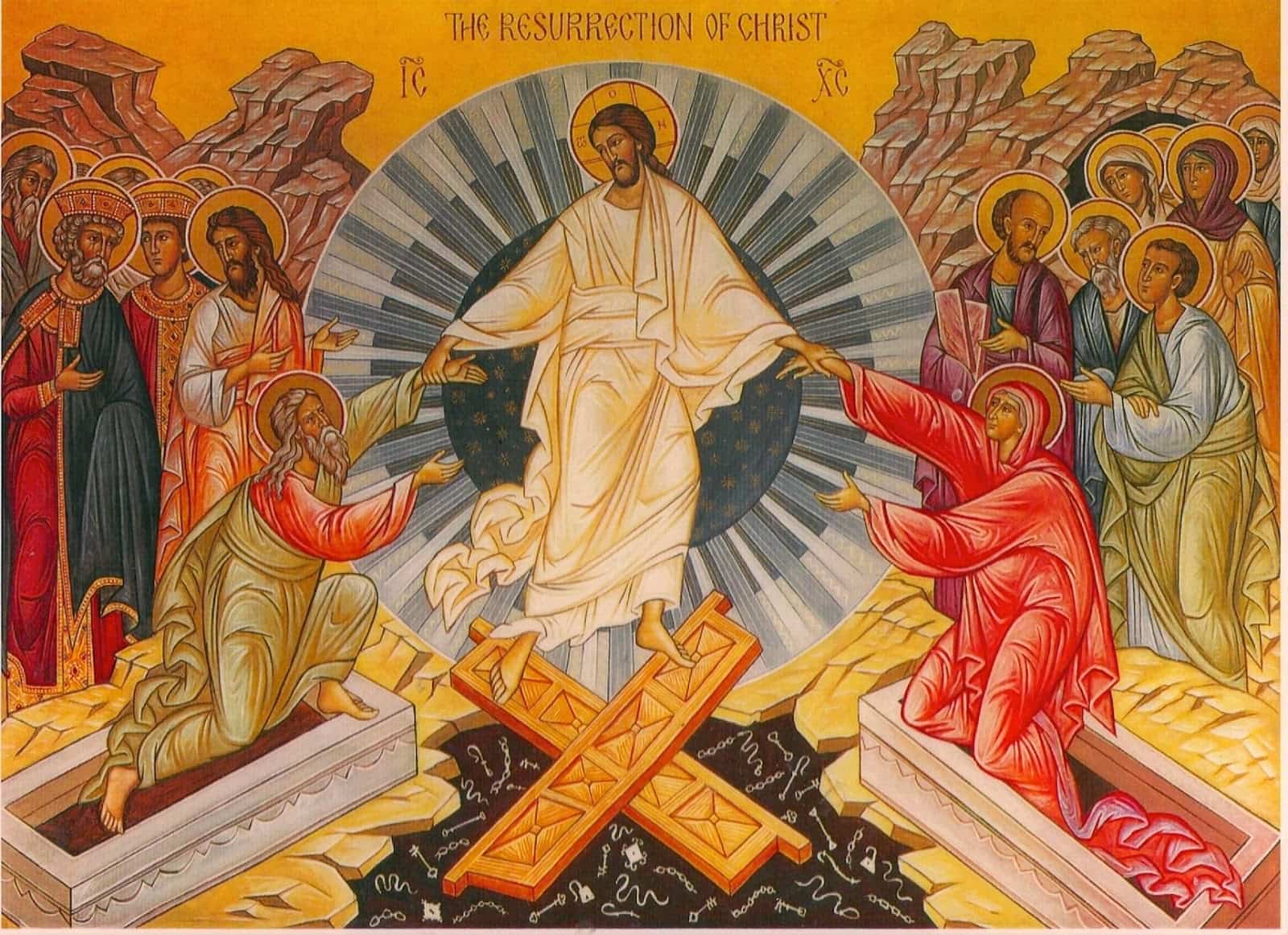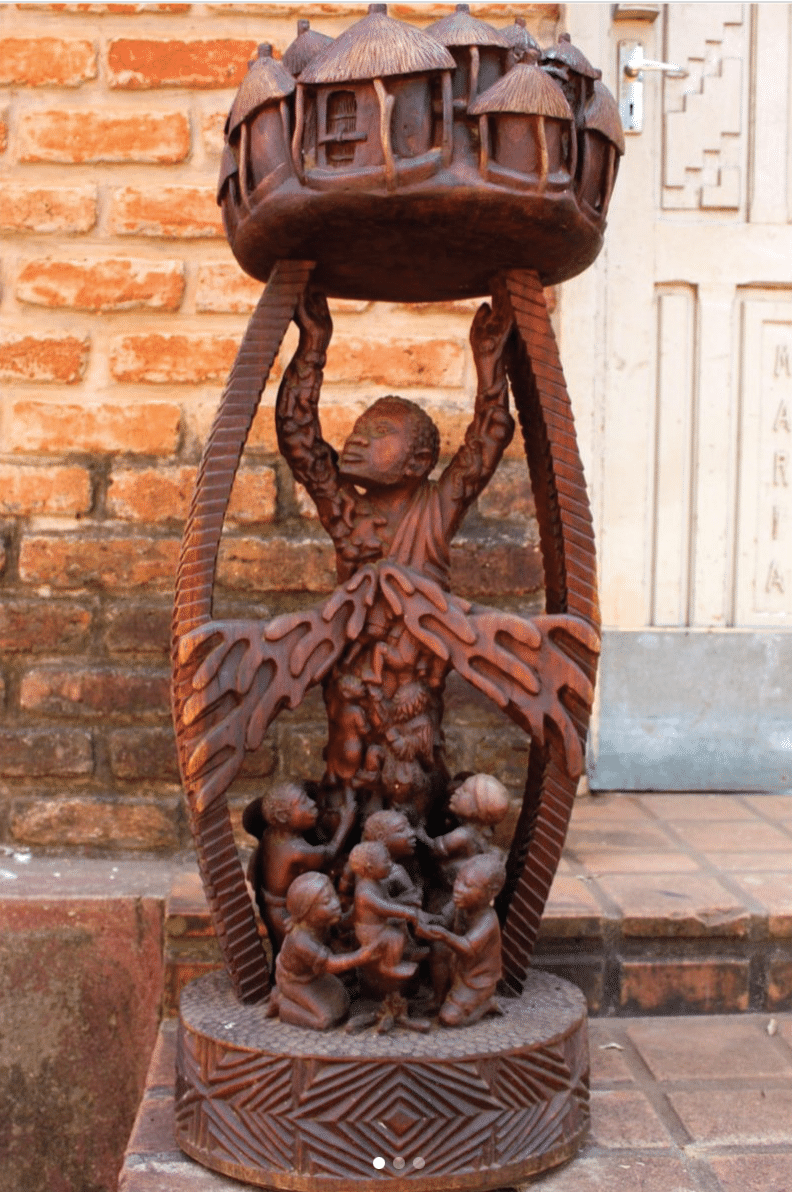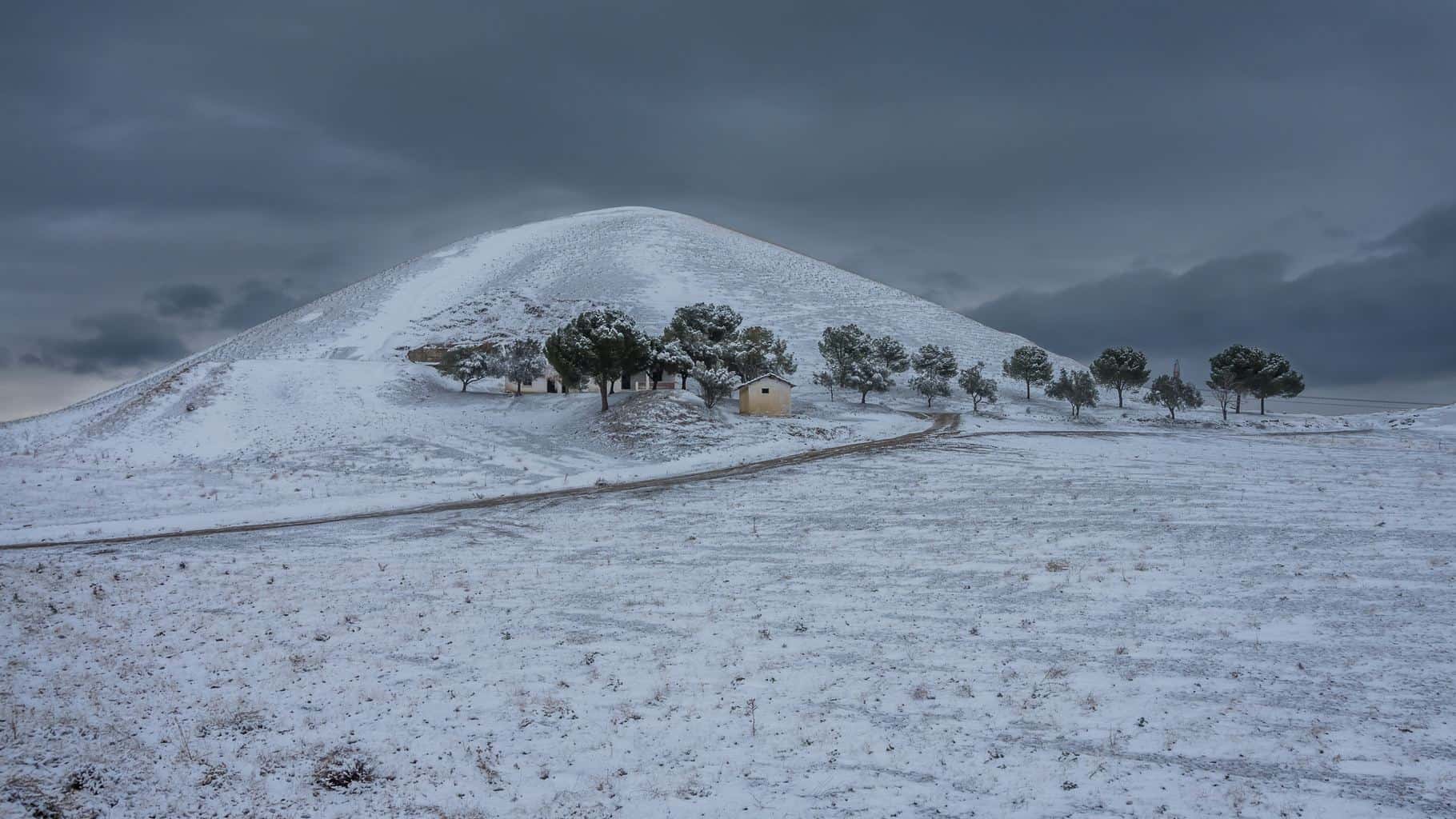Resistance is Fertile: Christ is Risen and Death has Died — Brad Jersak
the dead
by death
tomb bestowing life
 |
| “Resistance is Futile” – the Borg |
resistance is not always futile. In
truth, sometimes resistance is fertile.
possibility—that at the point of death, there may still be hope. Is death a
locked door beyond which there is no further opportunity to hear and respond to
the good news? My friend is sure of this. He cited the two classic texts, long known
as deal-killers for any hope of a ‘second-chance’ at salvation:
after this the judgment [κρίσις]”
9:27).
remember that thou in thy lifetime received thy good things, and likewise
Lazarus evil things: but now he is comforted, and thou art tormented.
beside all this, between us and you there
is a great gulf fixed: so that they which would pass from hence to you cannot;
neither can they pass to us, that would come from thence (Luke 16:25-26).
conversation, right? But resistance is fertile!
‘the harrowing of
hades’—believed and taught that on Holy Saturday, Christ descended into
hell (or hades), preached to the dead, and conquering death, led a parade of
captives out of the grave. This idea was originally drawn from Ephesian 4:8-10,
1 Peter 3:19-21 and 4:6, then affirmed in the Apostles Creed. Jesus too
proclaimed that “the dead will hear the voice of the Son of God; and they who
hear shall live” (John 1:25-26). This reality is written beautifully into the Eastern icon of the Harrowing of Hades, where Christ has descended to find Adam and Eve, his lost children, and to lead them out from the hades into paradise.
 |
| The Harrowing of Hades |
automatically ‘saved’ … Jesus continues in verses 28-29, saying that while all
are raised, some will be raised to a resurrection of life and others to a
resurrection of judgment [κρίσεως].
On the other hand, nor does it mean all are condemned forever. To quote an
ancient Holy Saturday homily and used in the current, official Catholic catechism:
reigns on earth, a great silence and a great stillness. A great silence because
the King is asleep. The earth trembled and is still because God has fallen
asleep in the flesh and he has raised up all who have slept ever since the
world began … He has gone to search for Adam, our first father, as for a lost
sheep. Greatly desiring to visit those who live in darkness and in the shadow
of death, he has gone to free from sorrow Adam in his bonds and Eve, captive
with him—He who is both their God and the son of Eve.. “I am your God, who for
your sake have become your son… I order you, O sleeper, to awake. I did not
create you to be a prisoner in hell. Rise from the dead, for I am the life of
the dead.[1]
friend continued to resist. He felt these passages were too obscure and
difficult to pin such hopes (the Apostles’ Creed notwithstanding).
went on to suggest that Revelation 20-22 may possibly imply an ongoing invitation beyond the final judgment. I
noted that in Revelation 20, the nations are destroyed and the wicked are cast
into the Lake of Fire (and the types of wicked are listed). But in chapter
21-22, when the New Heavens and New Earth become one and God dwells with his
bride in the New Jerusalem, what do we see?
- We see the wicked outside the city
walls (again, listed, now in Rev 22:15). Apparently the Lake of Fire was relocated? Or
perhaps we just have different imagery for the same judgment? - We see that the gates of the city are
never shut. - We see that the Spirit and the Bride
say, ‘Come!’ - To whom? Dare we say, to those outside
the walls? To those, it says, who are thirsty. - To where? Dare we say, in through the
open gates? To the waters of life that flow from the city! - To what? To partake of the tree of life
where the leaves provide healing to the nations! - We see the kings and the nations,
previously deceived by the beast and destroyed at Armageddon, hearing the
invitation, entering the gates, bringing their gifts and joining the Bride.
this seems very hopeful. And again, not that all are automatically ‘in.’ They
must still choose to respond to the invitation. They must still have their
robes washed in the blood of the Lamb. There is no bypassing the redemption of
the Cross … but there it is. Revelation 21-22 appears to hold open the possibility that death does not shut the
door to the Gospel or bar the wicked forever from the presence of God.
remained unconvinced. But he also surprised me with his own convictions, and
not the usual objections of those who resist postmortem salvation.
First, he said, “I am absolutely convinced that God is both all-powerful and all
loving and that he is unlimited in his grace.”
Well good, so we agree. “But,”
he continued, “because of the parable (of the rich man and Lazarus), I also
believe that once we die, there is no longer any further opportunity to be
saved.”
responded, “So then you really
believe God’s grace, his love and his power are
limited – by death.”
me finish,” he said, “Since God is all-powerful, all loving and without limits,
I believe everyone gets a real opportunity to respond to the
Gospel in this life, and (quoting Job
33),
twice, even three times—
30 to turn them back from the pit,
that the light of
life may shine on them.
opportunity—whether through natural revelation or the preaching of the Gospel or
direct intervention. He repeated, “I am
completely convinced: in God’s limitless power, love and grace, everyone must receive this opportunity
…” [YES! I’m nodding] But again, he repeats emphatically, “in this lifetime.” [I stop nodding … and probably look puzzled].
happening in real life. Thinking of Plato. Thinking of the Muslim girl in Yemen who dies in
a drone attack. Worse, thinking of those who’ve heard a distorted gospel by
spiritually abusive preachers who inoculate their listeners and drive them to
atheism.
And yet, from my friend’s perspective, all of these are able to
respond to the light they have in this life, and that would be enough. Jesus
revealed himself to the Greek philosophers as the Logos; Jesus hears and loves
and saves the Muslim girl who has blindly reached out to Allah; Jesus counts
the rejection of idolatrous counterfeits of himself as true worship.
somewhat infamous) thoughts:
think there’s the Body of Christ, which comes from all the Christian groups
around the world, or outside the Christian groups. I think everybody that loves
Christ, or knows Christ, whether they’re conscious of it or not, they’re
members of the Body of Christ. And I don’t think that we’re going to see a
great sweeping revival, that will turn the whole world to Christ at any time. I
think James answered that—the Apostle James in the first council in Jerusalem—when
he said that God’s purpose for this age is to call out a people for His name.
And that’s what God is doing today; He’s calling people out of the world for
His name, whether they come from the Muslim world, or the Buddhist world, or
the Christian world, or the non-believing world, they are members of the Body
of Christ because they’ve been called by God. They may not even know the name
of Jesus, but they know in their heart that they need something that they don’t
have, and they turn to the only light that they have, and I think that they are
saved, and that they’re going to be with us in heaven.
Jesus Christ to come into human hearts and soul and life, even if they’ve been
born in darkness and have never had exposure to the Bible. Is that a correct
interpretation of what you’re saying?
it is, because I believe that. I’ve met people in various parts of the world in
tribal situations, that they have never seen a Bible or heard about a Bible,
and never heard of Jesus, but they’ve believed in their hearts that there was a
God, and they’ve tried to live a life that was quite apart from the surrounding
community in which they lived.
There’s a wideness in God’s mercy.
There
is. There definitely is.
practically receives a viable revelation of Christ in this life. I wondered about the ‘god of this age who blinds the
minds of unbelievers so they cannot
believe’ (2 Corinthians 4:4-5) and whether God actually says, ‘Let there be
light’ in every heart (vs. 6) in this
life (of course not, say my neo-Reformed friends … only the Elect).
questions—the seeds of convictions—began to sprout with fresh vigor:
If God is all-powerful and all-loving—if his
grace is truly without limits—then why must
it only be so in this life? Why is death the great and insurmountable
show-stopper—God’s limit? Why must the “mercy that endures forever” (and unto ages of ages) and the “loving-kindness that is everlasting” be aborted at the point of
death? Or impotent over the grave? Is that the testimony of Scripture?
Is death really the final bell? Our last hurrah?
Is it the great and terrible pendulum swinging over our heads? Is it an
absolute ultimatum in that sense? Hasn’t Christ, through his resurrection, not
only escaped death, but also fundamentally altered it forever? Haven’t the
intractable conditions of the grave—its permanence, its inescapability, its
ironclad gates—been shattered permanently by Christ? Hasn’t the uncrossable
chasm now indeed been crossed, trumping the truth of the parabolic Lazarus with
the greater reality of the actual Lazarus? And isn’t Jesus not the only one to
cross the chasm, but the Firstborn of many brothers and sisters who would
follow in his wake?
Of course this is true ‘only for believers’—but
only believers in this life?
know. I don’t presume. But here is what I read—Christologically.
like a seal over your heart,
Like a seal on your arm.
For love
is as strong as death,
Jealousy is as severe as Sheol;
Its flashes are flashes of fire,
The very flame
of the Lord.
Solomon 8:6 NASB)
10 There were those who dwelt in darkness and in the shadow of death,
Prisoners in misery and chains,
11 Because they had rebelled against the words of God
And spurned the counsel of the Most High.
12 Therefore He humbled their heart with labor;They stumbled and there was none to help.
13 Then they cried out to the Lord in their trouble;He saved them out of their distresses.
14 He brought them out of darkness and the shadow of deathAnd broke their bands apart.
15 Let them give thanks to the Lord for His lovingkindness,And for His wonders to the sons of men!
16 For He has shattered gates of bronzeAnd cut bars of iron asunder.
(Psalm 107:10-16 NASB)
| The Prophet Hosea |
from my eyes.
commentator, C. F. Keil:
order to preserve believers from despair, the Lord announces in Hos 13:14 that He will nevertheless redeem His people from the power
of death. Hos 13:14. “Out of the hand of
hell will I redeem them; from death will I set them free! Where are thy
plagues, O death? where thy destruction, O hell! Repentance is hidden from mine
eyes.” The fact that this verse contains a promise, and not a threat, would
hardly have been overlooked by so many commentators, if they had not been led,
out of regard to Hos 13:13, Hos 13:15, to put force upon the words, and either take the first
clauses as interrogative, “Should I … redeem?”
(Calvin and others), or as conditional, “I would redeem them,” … But apart from
the fact that the words supplied are perfectly arbitrary, with nothing at all
to indicate them, both of these explanations are precluded by the sentences which
follow: for the questions, “Where are thy plagues, O death?” etc., are
obviously meant to affirm the conquest or destruction of hell and death.
the hand (or power) of hell, i.e., of the under world, the realm of death, is
equivalent to depriving hell of its prey, not only by not suffering the living
to die, but by bringing back to life those who have fallen victims to hell,
i.e., to the region of the dead. The cessation or annihilation of death is
expressed still more forcibly in the triumphant words: “Where are thy plagues
(pestilences), O death? where thy destruction, O hell?”[2]
Isaiah and Paul, let’s follow Keil to the root passage in Isaiah:
hosts will prepare a lavish banquet for all
peoples on this mountain; A banquet of aged wine, choice pieces with marrow,
And refined, aged wine.
7 And on this mountain He will swallow up the covering [shroud] which is over all peoples,
Even the veil which is stretched over all nations.
8 He
will swallow up death for all time … For the Lord has
spoken.
up on both these prophets (Hosea and Isaiah), linking Christ’s formative
resurrection with the final resurrection at the end. Back to Keil,
therefore very properly quoted these words in 1 Cor 15:55, in combination with the declaration in Isa 25:8, “Death is swallowed up in victory,” to confirm
the truth, that at the resurrection of the last day, death will be annihilated,
and that which is corruptible changed into immortality.
all doubt as to this exceedingly great promise, the Lord [in Hosea 13:14] adds,
“repentance is hidden from mine eyes,” i.e., my purpose of salvation will be
irrevocably accomplished.[3]
Apostle lays it out in order:
dead, the first fruits of those who are asleep. 21 For
since by a man came death,
by a man also came the
resurrection of the dead. 22 For as in Adam all die, so also in Christ all will be made alive. 23 But
each in his own order: Christ the first fruits, after that those who
are Christ’s at His coming, 24 then comes the end, when He hands over the kingdom to
the God and Father, when He has abolished all rule and all authority and
power. 25 For He must reign until He has put
all His enemies under His feet. 26 The last enemy that will be abolished
is death. 27 For He has put all things in subjection under His feet. … 28 When all
things are subjected to Him, then the Son Himself also will be subjected to the
One who subjected all things to Him, so that God may be all in all.
Corinthians 15:20-28 NASB).
to Revelation 1—now is not the time to skim Scripture! So carefully:
saw Him, I fell at His feet like a dead man. And He placed His right hand
on me, saying, “Do not be afraid; I am the first and the last, 18 and
the living One; and I was dead, and behold, I am alive forevermore,
and I have the keys of death and of Hades.”
preach the Gospel, I like to ask, “If Jesus Christ now holds the keys of death
and hades, what do you think he’ll do
with them?” Note in this text that hades
is distinguished from death. Sometimes we translate this word, ‘the grave,’ but
surely it is also in parallel with the hades
of the rich man’s fate, right? So when Jesus told the parable, the rich man was
in hades where the door was locked
and when the devil held the key.
the resurrection of Christ, the door and its keys are now under new management!
We have a completely different situation. So Hebrews says:
and blood, He Himself likewise also partook of the same, that through
death He might render powerless him
who had the power of death, that is, the devil, 15 and
might free those who through fear of death were subject to slavery all
their lives.
2:14-15)
Jesus was not wrong in putting words in Abraham’s mouth: the rich man was
indeed stuck. The devil had (had) the
power of death. He was the ‘strongman’ who owned the house of death (Matthew
12:29) … but only until Easter. After that, everything
changed. Death changes, the grave changes, hades is broken open, trampled down and plundered of its prisoners.
Something shifted on Holy Saturday … shifted forever. Something permanent that
calls into question the power of death before the love, power and grace of God.
still die. And death is still an enemy. But if Jesus holds the keys … what do
you think he’ll do with them? We certainly have a foretaste in Revelation 20:
and death and Hades gave up the
dead which were in them; and they were judged, every one of them according
to their deeds. 14 Then death and Hades were thrown into the lake of fire. 15 And
if anyone’s name was not found written in the book of life, he was
thrown into the lake of fire.
20:13-15)
pretty ominous if you think of it: Jesus saves everyone in hades just so he can cast them into the Lake of Fire too? I would
only stipulate that if we make that move, we must also take seriously the
reappearance of the wicked outside the city in chapter 22, where the Spirit and
Bride are still calling. We don’t get to pick and choose, right?
not an article about universal reconciliation. We’re focusing instead only on
the radical overthrow and deep-level alteration (or transfiguration?) of death
and hades through the death, burial
and resurrection of Jesus. The nature of death and the grave is now such that
Jesus is forever in charge, so the possibility
of hope thereafter should not be ruled out because of pre-resurrection
descriptions of the afterlife.
hope for our loved ones beyond the grave—those who may not have responded to
the Gospel we preached or the light they had? Could God, even then, in his
limitless power and grace, still declare, “Let there be light” in their hearts
to open their eyes to the revelation of the Gospel of Christ?
know. I hope so. I pray so. But my hope is not just wishful thinking and my prayers
are expectant, because they are set on the all-merciful One. Last night, at the
Ash Wednesday service, I took to heart the message from Archbishop Lazar
Puhalo, who described this hope in these ways: At the last day, we will be in
awe of his glory and majesty, but also and perhaps more so of his embracing
compassion, his co-suffering, unselfish and compassion love, which is the very
power of his shed blood. Perhaps even then, many will open their hearts and
hands to receive his gift—the gift of his own self—and partake of the
life-giving spring of his blood.
that on that day, every knee will bow
and tongue confess that Jesus Christ is Lord to the glory of God (Philippians
2)—sounds like worship to me. Perhaps in that moment, even our resistance will
be fertile!
with the testimony of a Western and then an Eastern father:
Jerome:
Moreover the Lord liberated everyone, and redeemed them through the suffering
of the Cross and the shedding of His blood, when His soul descended into Hades,
and He did not experience corruption to His flesh; and He speaks of the death
itself as well as Hades: “I will be your death, O Death!” For that reason
I have died so that you may die through My death. “I will be your death,
O Hades” for you devoured all with your throat.[4]
finale, from Chrysostom’s paschal homily:
death has set us free. He that was held prisoner of it has annihilated it. By
descending into Hell, He made Hell captive. He embittered it when it tasted of
His flesh. And Isaiah, foretelling this, did cry: Hell, said he, was
embittered, when it encountered Thee in the lower regions. It was embittered,
for it was abolished. It was embittered, for it was mocked. It was embittered,
for it was slain. It was embittered, for it was overthrown. It was embittered,
for it was fettered in chains. It took a body, and met God face to face. It
took earth, and encountered Heaven. It took that which was seen, and fell upon
the unseen.
where is your victory? Christ is risen, and you are overthrown. Christ is
risen, and the demons are fallen. Christ is risen, and the angels rejoice.
Christ is risen, and life reigns. Christ is risen, and not one dead remains in
the grave. For Christ, being risen from the dead, is become the first fruits of
those who have fallen asleep. To Him be glory and dominion unto ages of ages.
Amen.[5]
Saturday, OR.
13:14.















 Plain Truth Ministries | Box 300 | Pasadena, CA 91129-0300
Plain Truth Ministries | Box 300 | Pasadena, CA 91129-0300

